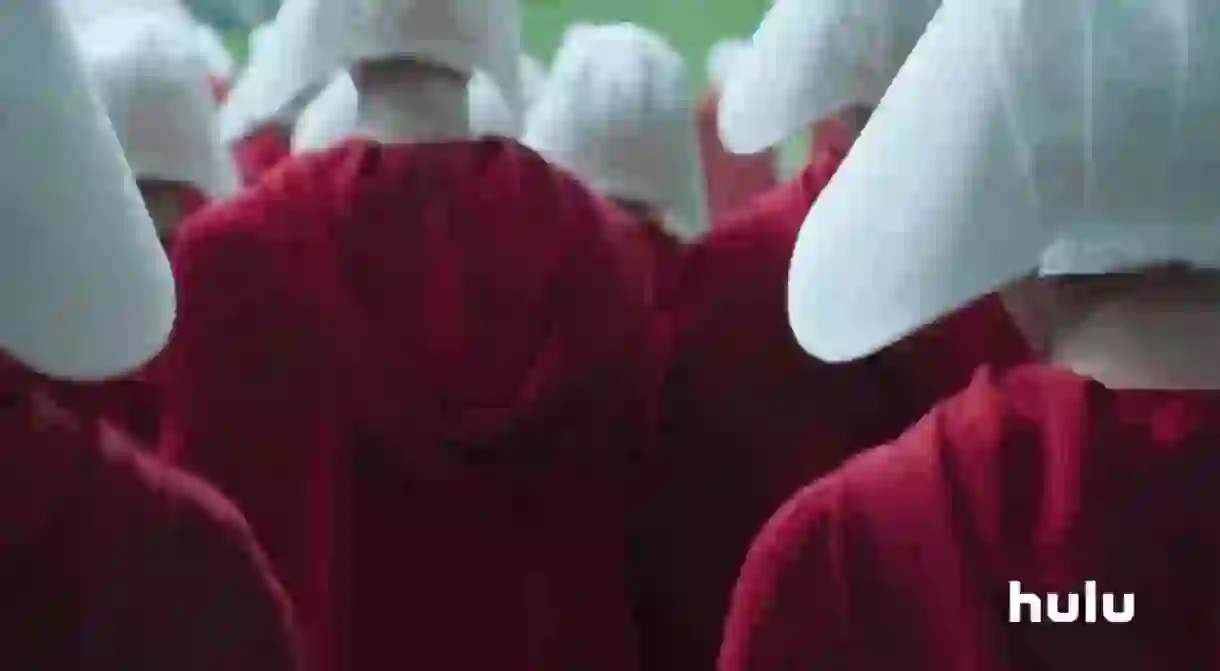'The Handmaid's Tale' TV Adaptation Couldn't Have Come at a More Perfect Time

The first ever TV adaptation of The Handmaid’s Tale, Margaret Atwood’s 1985 dystopian masterpiece, airs on Wednesday. It is a story more important now than at any other time in the past 30 years, writes Grace Beard, which makes the ten-part series a must-watch.
It hasn’t taken long, since his inauguration, for parallels to be drawn between Trump’s America and the terrifying alternate realities of dystopian literature. Kellyanne Conway’s ‘alternative facts’ have been likened to Orwellian Newspeak, while Sinclair Lewis’ 1935 satire It Can’t Happen Here is now hailed for having foretold Trump’s rise to power. For one group in America, however, there is no dystopian world quite as resonant and cautionary as that of The Handmaid’s Tale.
Set in a United States overthrown by a government that polices women’s bodies and legislates gender roles, Atwood’s dystopia is becoming all too real for American women. From pussy-grabbing entitlement to his repeated threats to defund Planned Parenthood, the president’s contempt for women seems to know no limits. In The Handmaid’s Tale, we’re invited to watch what happens when such misogyny is magnified and legislated. Trump’s notorious brag that he can grope women as a result of his powerful position becomes state-sanctioned, legalised rape. The current government’s slow and steady curbing of women’s reproductive rights becomes fundamental law, as the few remaining fertile women are stripped of their autonomy and assigned to rich men to procreate, while the rest are sent to work to death in distant colonies.
https://www.youtube.com/watch?v=PJTonrzXTJs
Like all great literature, The Handmaid’s Tale is both timely and timeless. It was by reading the novel for the first time at fifteen that I recognised that the complicated relationship I had with my body stemmed from feeling as though it wasn’t entirely mine. Even then, the Republic of Gilead – the name given to the book’s theocratic regime – seemed entirely feasible. Atwood herself has long claimed that the book is a work of speculative fiction, rather than sci-fi, and that there’s nothing in it that hasn’t already happened. And women know it when they see it: since Trump’s inauguration, not only has The Handmaid’s Tale returned to the bestseller lists, but women are protesting abortion restrictions by dressing up as handmaids.
The Handmaid’s Tale warns us not to be complacent, and its arrival on television – a format with which the President is well acquainted – makes this warning hard to ignore. Any American who doesn’t recognise their presidency in the regime depicted on their screens on Wednesday could be accused of turning a blind eye.
Read more: Film Editor Graham Fuller asks, does The Handmaid’s Tale predict the future, or is it alarmist?













